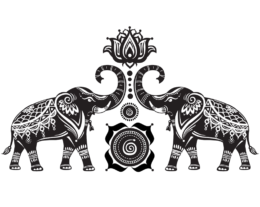The Tapestry of Culture: Understanding Its Significance and Impact
Culture is the intricate tapestry of human experience, encompassing the beliefs, values, customs, arts, and social behaviors that characterize a particular group or society. It shapes our identities, influences our interactions, and provides a framework through which we understand the world around us. From language and religion to cuisine and art, culture is a dynamic and evolving entity that reflects the history and aspirations of its people. This essay explores the significance of culture, its role in shaping individual and collective identities, and its impact on society as a whole.
The Components of Culture
Culture is composed of various elements that together create a unique social fabric. These components include:
-
Language: Language is a fundamental aspect of culture, serving as a primary means of communication and a vehicle for expressing thoughts, emotions, and ideas. It shapes how individuals perceive and interpret their experiences, influencing their worldview.
-
Beliefs and Values: The beliefs and values of a culture dictate what is considered important, moral, and acceptable within that society. These principles guide behavior and decision-making, providing a sense of purpose and direction.
-
Customs and Traditions: Customs and traditions are the practices and rituals that are passed down through generations. They encompass everything from daily routines to significant life events, such as weddings and funerals, and serve to reinforce social bonds and cultural identity.
-
Art and Literature: Artistic expression, including visual arts, music, dance, and literature, reflects the creativity and imagination of a culture. It serves as a means of storytelling, preserving history, and exploring complex emotions and ideas.
-
Social Structures: Culture also encompasses the social structures that organize society, including family dynamics, social hierarchies, and community organizations. These structures influence how individuals relate to one another and navigate their social environments.
The Role of Culture in Identity Formation
Culture plays a crucial role in shaping individual and collective identities. From a young age, individuals are immersed in their cultural environments, learning the norms, values, and practices that define their communities. This cultural upbringing influences their sense of self and belonging, providing a framework for understanding their place in the world.
For many, cultural identity is a source of pride and connection. It fosters a sense of belonging to a larger community, creating bonds that transcend individual differences. However, cultural identity can also be complex and multifaceted, particularly in an increasingly globalized world. Individuals may navigate multiple cultural identities, leading to rich and diverse experiences but also potential conflicts and challenges.
The Impact of Culture on Society
Culture has a profound impact on society, influencing social cohesion, economic development, and political dynamics. A shared culture fosters a sense of unity and belonging among individuals, promoting social stability and cooperation. Cultural festivals, communal celebrations, and shared traditions strengthen social bonds and create a sense of community.
Moreover, culture is a driving force behind innovation and creativity. Artistic expression and cultural production contribute to economic growth, attracting tourism and fostering local industries. Cities known for their cultural heritage often become hubs of creativity, drawing artists, entrepreneurs, and thinkers who contribute to a vibrant and dynamic society.
However, culture can also be a source of conflict. Differences in cultural beliefs and practices can lead to misunderstandings, prejudice, and discrimination. In multicultural societies, navigating these differences requires open dialogue, empathy, and a commitment to inclusivity. Promoting cultural awareness and understanding is essential for fostering harmony and cooperation in diverse communities.
The Evolution of Culture in a Globalized World
In today’s interconnected world, culture is constantly evolving. Globalization has facilitated the exchange of ideas, practices, and traditions across borders, leading to the emergence of hybrid cultures. While this exchange can enrich societies and promote cross-cultural understanding, it can also pose challenges to the preservation of traditional cultures.
As cultures interact and influence one another, there is a risk of cultural homogenization, where dominant cultures overshadow local traditions and practices. This phenomenon raises important questions about cultural preservation and the importance of safeguarding cultural heritage. Efforts to promote cultural diversity and protect indigenous practices are essential for maintaining the richness of the global cultural landscape.
Conclusion
Culture is a vital aspect of the human experience, shaping our identities, influencing our interactions, and providing a framework for understanding the world. It encompasses a diverse array of elements, from language and beliefs to customs and artistic expression. As we navigate the complexities of an increasingly globalized society, it is essential to recognize the significance of culture in fostering social cohesion, promoting creativity, and addressing the challenges of diversity. By celebrating and respecting cultural differences, we can create a more inclusive and harmonious world, enriching our collective human experience.
